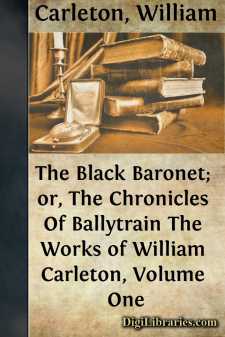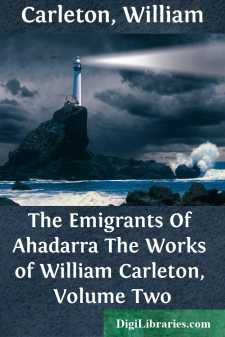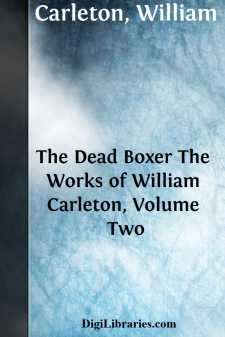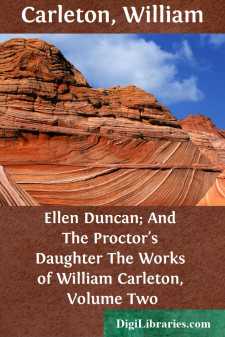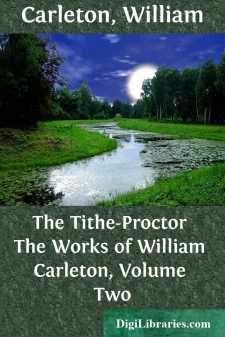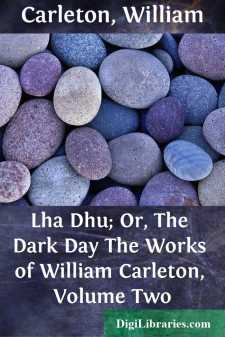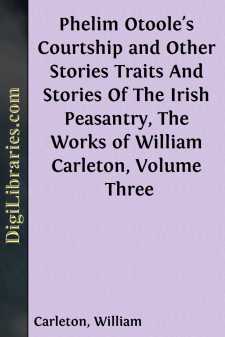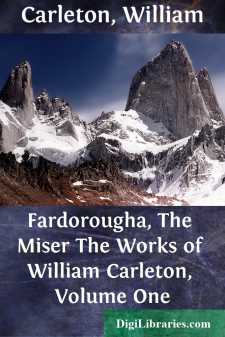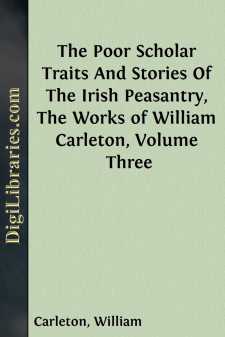Categories
- Antiques & Collectibles 13
- Architecture 36
- Art 48
- Bibles 22
- Biography & Autobiography 813
- Body, Mind & Spirit 142
- Business & Economics 28
- Children's Books 17
- Children's Fiction 14
- Computers 4
- Cooking 94
- Crafts & Hobbies 4
- Drama 346
- Education 46
- Family & Relationships 57
- Fiction 11829
- Games 19
- Gardening 17
- Health & Fitness 34
- History 1377
- House & Home 1
- Humor 147
- Juvenile Fiction 1873
- Juvenile Nonfiction 202
- Language Arts & Disciplines 88
- Law 16
- Literary Collections 686
- Literary Criticism 179
- Mathematics 13
- Medical 41
- Music 40
- Nature 179
- Non-Classifiable 1768
- Performing Arts 7
- Periodicals 1453
- Philosophy 64
- Photography 2
- Poetry 896
- Political Science 203
- Psychology 42
- Reference 154
- Religion 513
- Science 126
- Self-Help 84
- Social Science 81
- Sports & Recreation 34
- Study Aids 3
- Technology & Engineering 59
- Transportation 23
- Travel 463
- True Crime 29
William Carleton
William Carleton (1794-1869) was an influential Irish writer best known for his vivid depictions of rural Irish life in the 19th century. His most celebrated work, "Traits and Stories of the Irish Peasantry," provides a rich, detailed portrayal of the social customs, struggles, and folklore of Irish peasants. Despite facing criticism for his negative portrayals of certain aspects of Irish life, Carleton's writings are valued for their authenticity and contribution to Irish literature.
Author's Books:
Sort by:
by:
William Carleton
CHAPTER I.—An Adventure and an Escape. Spirit of George Prince Regent James, Esq., forgive me this commencement! * * I mean no offence whatsoever to this distinguished andmultitudinous writer; but the commencement of this novel reallyresembled that of so many of his that I was anxious to avoid thecharge of imitating him. It was one evening at the close of a September month and a September day that...
more...
by:
William Carleton
CHAPTER I. A Mail-coach by Night, and a Bit of Moonshine. It has been long observed, that every season sent by the Almighty has its own peculiar beauties; yet, although this is felt to be universally true—just as we know the sun shines, or that we cannot breathe without air—still we are all certain that even the same seasons have brief periods when these beauties are more sensibly felt, and diffuse...
more...
by:
William Carleton
CHAPTER I.—A strong Farmer's Establishment and Family. It was one summer morning, about nine o'clock, when a little man, in the garb and trim of a mendicant, accompanied by a slender but rather handsome looking girl about sixteen, or it may be a year more, were upon their way to the house of a man, who, from his position in life, might be considered a wealthy agriculturist, and only a step...
more...
by:
William Carleton
CHAPTER I. One evening in the beginning of the eighteenth century—as nearly as we can conjecture, the year might be that of 1720—some time about the end of April, a young man named Lamh Laudher O'Rorke, or Strong-handed O'Eorke, was proceeding from his father's house, with a stout oaken cudgel in his hand, towards an orchard that stood at the skirt of a country town, in a part of the...
more...
by:
William Carleton
ELLEN DUNCAN There are some griefs so deep and overwhelming, that even the best exertions of friendship and sympathy are unequal to the task of soothing or dispelling them. Such was the grief of Ellen Duncan, who was silently weeping in her lone cottage on the borders of Clare—a county at that time in a frightful state of anarchy and confusion. Owen Duncan, her husband, at the period about which our...
more...
by:
William Carleton
CHAPTER I.—The Chapel Green of Esker Dearg. The chapel of Esker Dearg, or the Red Ridge, was situated in a rich and well-cultivated country, that for miles about it literally teemed with abundance. The Red Ridge under which it stood was one of those long eminences, almost, if not altogether, peculiar to Ireland. It was, as the name betokens, a prolonged elevation that ran for nearly a mile and a half...
more...
by:
William Carleton
There is no country in the world whose scenery is more sweetly diversified, or more delicately shaded away into that exquisite variety of surface which presents us with those wavy outlines of beauty that softly melt into each other, than is that of our own green island. Alas! how many deep valleys, wild glens, green meadows, and pleasant hamlets, lie scattered over the bosom of a country, peopled by...
more...
by:
William Carleton
PHELIM O'TOOLE'S COURTSHIP. Phelim O'Toole, who had the honor of being that interesting personage, an only son, was heir to a snug estate of half an acre, which had been the family patrimony since the time of his grandfather, Tyrrell O'Toole, who won it from the Sassenah at the point of his reaping-hook, during a descent once made upon England by a body of "spalpeens," in...
more...
by:
William Carleton
PART I. Fardorougha, the Miser. It was on one of those nights in August, when the moon and stars shine through an atmosphere clear and cloudless, with a mildness of lustre almost continental, that a horseman, advancing at a rapid pace, turned off a remote branch of road up a narrow lane, and, dismounting before a neat whitewashed cottage, gave a quick and impatient knock at the door. Almost instantly,...
more...
by:
William Carleton
THE POOR SCHOLAR. One day about the middle of November, in the year 18—, Dominick M'Evoy and his son Jemmy were digging potatoes on the side of a hard, barren hill, called Esker Dhu. The day was bitter and wintry, the men were thinly clad, and as the keen blast swept across the hill with considerable violence, the sleet-like rain which it bore along pelted into their garments with pitiless...
more...



